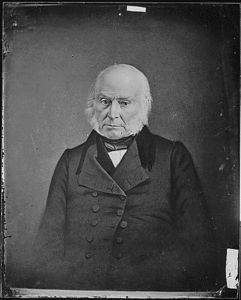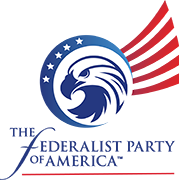Throughout my thirty-year teaching career, speaking to students about history, government, and politics, I’ve never had much good to say about third parties in the American political system. More often than not, they have caused a problem, their adherents allowing someone—usually not the right one—to win the presidency.
Third-party platforms are then absorbed into one of the two major parties and that third party ceases to exist.
For any new political party to rise up and be a major factor in the long term in our system, one of the current parties needs to be on its way out. That’s happened only once in American history.
 After the demise of the first two-party arrangement, for a while there was only one party. We’re talking about the 1820s. Yet, as a testimony to differences of opinion, that one party was “one” in name only. In 1824, four men vied for the presidency within the supposed one party. John Quincy Adams emerged the victor, but the rancor following his win (decided only after a vote in the House of Representatives) led to Andrew Jackson leading his newly named Democrat party to dominance afterwards.
After the demise of the first two-party arrangement, for a while there was only one party. We’re talking about the 1820s. Yet, as a testimony to differences of opinion, that one party was “one” in name only. In 1824, four men vied for the presidency within the supposed one party. John Quincy Adams emerged the victor, but the rancor following his win (decided only after a vote in the House of Representatives) led to Andrew Jackson leading his newly named Democrat party to dominance afterwards.
Those who opposed Jackson finally were able to organize sufficiently to call themselves a party, designated Whigs. The name was symbolic historically—Whigs in Britain opposed monarchs who stepped over the line. American Whigs saw Jackson as a wanna-be monarch, as highlighted in this particular political cartoon of the era:

The Whigs were basically an anti-Jackson party. Any party built primarily on a negative will not survive, and that’s what happened to the Whigs. Jackson passed from the scene eventually, and those who had assembled under its banner found themselves divided on issues, particularly slavery.
By the early 1850s, the Whigs were in rapid decline. It took that type of decline for a new party to arise—the Republicans.
Some are convinced that our present two-party arrangement is in decline as well, particularly conservatives devoted to the rule of law and the Constitution. They see the Republican party as only a shadow of its Reaganesque self; they want a new party to arise and take its place.
 There is such a new party in the making. It’s called the Federalist Party of America, drawing its name not so much from the first Federalist party as from the term itself, which means that political power is to be divided properly among national, state, and local governments.
There is such a new party in the making. It’s called the Federalist Party of America, drawing its name not so much from the first Federalist party as from the term itself, which means that political power is to be divided properly among national, state, and local governments.
This new party is attempting to build from the grassroots, and aims not merely at getting a certain person elected president, but starting instead at the local level, seeking to gain a reputation by winning those elections.
All too often, third parties aim at the top and don’t take the time to form a solid foundation. Some came into being only to promote a charismatic candidate rejected by a major party—hence the quick rise and equally quick fall of the Progressive Party of Theodore Roosevelt in 1912.
The Federalist Party of America hopes to do things differently. What does it want to achieve? Its goals are clearly laid out:
- The strength of America lies in its people, not in its government.
- Government solutions, when necessary, should be pursued at the lowest level of government possible, that closest to the people they affect.
- America has one overarching set of laws authorized directly by The People:The Constitution of the United States of America.That supreme governing document stands as is unless and until amended.
- An ever-encroaching federal state threatens the general welfare of current and future generations of Americans. That encroachment can and must be reversed by democratic means.
- A 28th Amendment to limit the number of terms that members of Congress may serve is necessary and justified to restore restrictions on federal powers as intended by our nation’s founders and delineated in the Constitution.
Except for that last one on term limits—a concept I’ve never before endorsed but am willing to reconsider—I like the goals.
But are we really at the place where a third party such as this can rise up to take over one of the two major spots in our system? Is the Republican party truly in demise?
Frankly, I don’t know. However, if the new Federalist Party has any chance of succeeding, it must follow the strategy of starting at lower levels and showing the electorate that its candidates can be trusted to carry out these goals.
This blog post today is not an outright endorsement, but I thought it important to make you aware of what is bubbling beneath the surface. I, for one, would welcome this challenge to a Republican establishment that has all too often offered only lip service to its stated principles.
So, Federalist Party of America, what will make you different? How will you ensure that your candidates will do more than talk a good talk? I’ll be watching—and hoping—that you are for real.
